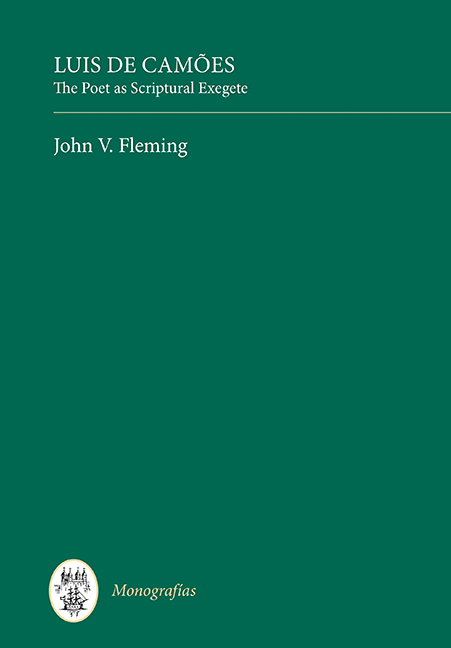3 - The Eclogue of Theodulus
Published online by Cambridge University Press: 15 September 2017
Summary
As a classical poet, Camões was necessarily an imitative poet—one who willingly sought in a spirit at once respectful and bold to enroll his poem in recognized and admired anterior tradition. In the very opening phrase of the Lusíadas he acknowledges his principal allegiance. It is to the Æneid of Virgil, and it is followed by literally hundreds of other Virgilian echoes and borrowings. Of course, he was familiar as well with the “modern” epic poets of Italy, Boiardo and Ariosto. From Ariosto in particular he had learned much, but the prominent, explicit, and early reference to him in the Lusíadas (I, xi) seems hardly that of a respectful disciple. The inventor of Adamastor denigrates the adventures of Rodamonte and Rugeiro as fantásticas, fingidas, and mentirosas (fantastic, made-up, and lying)! The superiority of his own work, implicitly, rests upon the historicity and truth of its epic matter. The question of the comparative truth claims of different modes of poetry is a significant one in the current context as well.
What poems had he studied in preparing Sôbolos rios? Most obviously, of course, he had studied the psalm itself. The incipit Sôbolos rios bears the same relationship to the phrase Super flumina that the incipit As armas e os barões bears to the phrase Arma virumque. In the cultural and religious context of his age, “studying the Bible” included as a matter of course acquiring familiarity with the exegetical tradition, that is, with the textual penumbra of “spiritual” or allegorical interpretation that was the work of many centuries of earlier commentary. But there are in his poem so many obvious echoes of or borrowings from secular poets both pagan and Christian that Sôbolos rios might be regarded as a kind of emblem of his life-long literary education. Any serious analysis of Camões's enterprise must necessarily include a consideration of his complex relationship to his “sources.”
There are in Camões numerous traces of the great giants of the late medieval canon—Virgil, Augustine, Boethius, Dante, Petrarch and others. In subsequent chapters I will frequently make reference to such major authors in the great tradition, but it is necessary to begin with two texts that have largely fallen into oblivion.
- Type
- Chapter
- Information
- Luis de CamõesThe Poet as Scriptural Exegete, pp. 61 - 82Publisher: Boydell & BrewerPrint publication year: 2017

